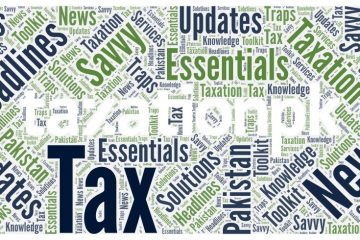As a Pakistani citizen, it is important to have a basic understanding of the tax regime in the country. Taxes are the main source of revenue for the government to fund public services, infrastructure development, and social welfare programs. Therefore, it is important for every individual and business to comply with the tax laws and pay their fair share of taxes.
The Income Tax Ordinance is the primary legislation governing the tax system in Pakistan. It defines how the income will be taxed and what rates will apply on what type of income. The tax system in Pakistan is classified into three broad categories: the Normal Tax Regime, Final Tax Regime, and Minimum Tax Regime.
Normal Tax Regime
Under the Normal Tax Regime, individuals or businesses are taxed on an annual basis. This means that at the end of each financial year, taxpayers are required to file their tax returns and pay taxes on their income. The Income Tax Ordinance defines various rules to calculate such income. Some expenses and deductions are allowed, while some are not allowed to be deducted from the gross income figure.
In this regime, business income is taxed on a progressive basis, which means that the higher the income, the higher the tax rate. On the other hand, corporate entities are set to be taxed on a certain percentage, depending on the nature of the business. Usually, salary income, business income, and some portion of other heads of income are taxed under this regime.
Final Tax Regime
In the Final Tax Regime, tax is deducted or collected at the source. This means that when an individual or entity pays income, they deduct certain tax and then deposit it in the government treasury. The person collecting the tax is liable to provide a computerized receipt of such tax payment. Payments of services, goods, contracts, profits, and other types of income fall under this regime.
The advantage of the Final Tax Regime is that the taxpayer does not have to file a tax return at the end of the year. The tax collected at the source is considered as final tax liability for the taxpayer.
Minimum Tax Regime
A certain percentage of tax is applied to some incomes/businesses under the Minimum Tax Regime. In simple words, it is the tax one has to pay even when there is no profit for a certain year. This means that a certain amount of tax is payable irrespective of the income or profit earned. This regime is applicable to some specific types of businesses or individuals and is designed to ensure that everyone contributes to the tax revenue, even if they do not earn a profit.
Conclusion
In conclusion, it is important for every individual and business to understand the tax system in Pakistan. It is the responsibility of every taxpayer to comply with the tax laws and pay their fair share of taxes. The Normal Tax Regime, Final Tax Regime, and Minimum Tax Regime are the three main categories of the tax system in Pakistan. By understanding these regimes, taxpayers can better manage their tax liabilities and avoid any legal issues.






